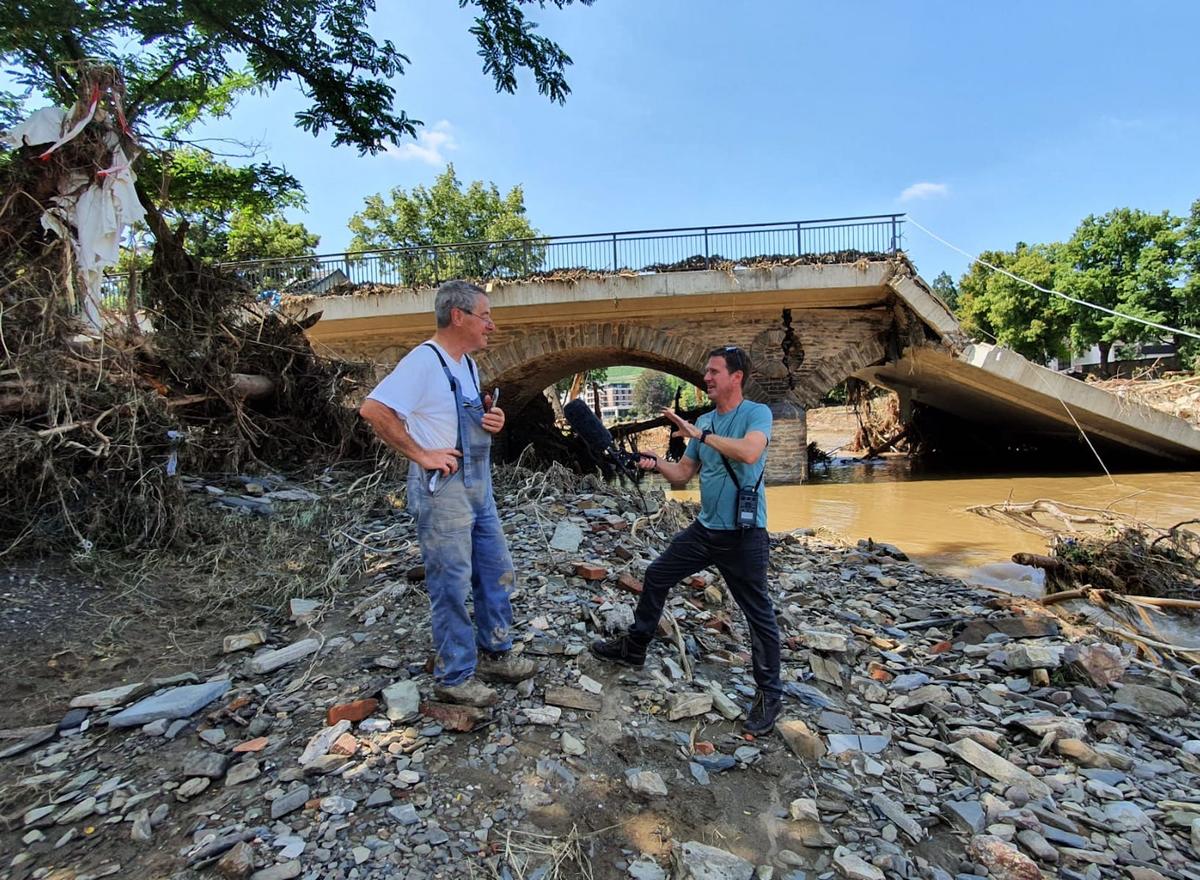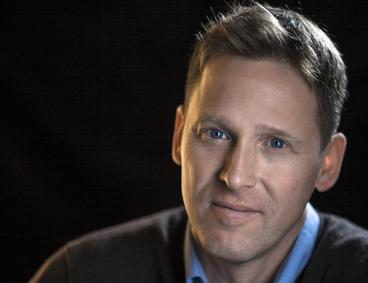For more than two years, Rob Schmitz ’96 has covered European news from his base in Berlin, Germany. He gathered facts, often through contact with trusted sources, and sometimes as a witness to tense confrontations.
His reports air on National Public Radio. They have included extensive reports on Germany’s former Chancellor Angela Merkel’s handling of COVID-19, the migrant crisis, and economic issues. In 2021, he reported on the transfer of power to Olaf Scholz and the three-party coalition government.
Schmitz takes a weekly run past Merkel’s house, and that has been the closest he got to see her in person. “Merkel didn't talk to many journalists,” Schmitz says. “She did an average of one or two interviews a year and it was always with German media. She kept an arm's length away from the press.”
That didn’t stop Schmitz. He found the government to be accessible. “I’d call Merkel’s spokesperson, who worked with her every day. I could call him and talk to him anytime.”
Danger and Drama
Once, in late 2021, Schmitz arrived in the Polish town of Sokolka. He was reporting on the tensions surrounding thousands of migrants from countries such as Iraq, Syria, and Afghanistan who were trying to cross into Poland. Refugees traveling from Belarus were seeking asylum in Poland, but they were caught and sent back, only to be trapped on the border.
In the night, Schmitz and his Polish interpreter were summoned to the border because the police had apprehended two migrants. “We approached a police car where two men sat on a bench,” says Schmitz. The police needed help interpreting. “I realized that the men were speaking Spanish, so I asked them where they were from. They said Cuba.”
The men were trying to get to family in Barcelona. They flew to Moscow from Havana where human traffickers picked them up in Moscow and drove them to the border. “The men had been in the forest in the cold for 10 days. They were very hungry and malnourished. They were extremely thirsty and sick from drinking river water.”
The police asked Schmitz to translate. “Not only I was a journalist, at that moment, I was helping facilitate understanding between these two groups. It was a very unusual scenario.” Schmitz lent the men his phone so that they could call their families.
Schmitz tapped into the mastery he achieved by studying Spanish at UMD. “When I got the Spanish major, I never thought that I would be using Spanish on the border of Belarus and Poland,” Schmitz has stayed in touch with the Cubans. “They still haven’t made it across the border.”
Around the World
His time in Berlin is just one of the places Schmitz spent outside the U.S. He is from Elk River, Minnesota. At UMD he studied abroad in Seville, Spain, and he did his student teaching in Melbourne, Australia. After UMD, his first stop was Zigong, Sichuan Province, in China, working as a Peace Corp volunteer. That’s where he learned Mandarin Chinese.
Back in the States, he received his master's degree in journalism at Columbia which led to stints at Minnesota Public Radio in Rochester, Minnesota; KPCC radio in Orange County California, and KQED radio in Los Angeles. before heading to Shanghai, China, as China Bureau Chief for American Public Media’s Marketplace program.
His next stop was correspondent for National Public Radio in Shanghai where he covered human stories focusing on the economy and its impact on the world. He lived there with his wife, Lenora Chu, and their sons, Landon and Rainer.
In addition to his reporting job, he wrote a book, “Street of Eternal Happiness: Big City Dreams Along a Shanghai Road.” He focused on the stories of the people along one street in the city. “I knew I wanted to write a book about China,” he says. “but it’s difficult to write a book about a complicated country of 1.3 billion people with an economy moving faster than any economy in the history of human civilization, so I chose to focus on individual people. “I brought in the aspects of not just that street, but the people and their backgrounds. I learned where they came from and the history of the stores that they worked in. It was really a nice way to put it together.
Remembering Duluth
My family and I would take all these trips to the north shore and every time I saw Duluth, I thought, “this is my place.” When they would cross over the hill near Spirit Mountain “we’d suddenly see the city and the lake,” he said. “I loved that. It just felt like home,” Schmitz says.
“I was really into the outdoors when I was in Duluth. In the winter I became a cross country skier and any other time of the year I was mountain biking.”
Schmitz says he is grateful to UMD for many things: “first of all my professors, for the friends I’ve made, and that I was a resident advisor for a year. I’m really grateful for the study abroad opportunity that I had while I was there.”
“In many ways, UMD set me on the path to becoming what I am today.” Schmitz talks about where he is at now. “Honestly, the thing I’m most happy about is that I feel very fortunate to be reporting on such amazing countries and to have this job because it allows me to travel to some of the most interesting places on the planet.”
------------
Banner photo (above): Schmitz interviews a resident of Bad Neuenahr-Ahrweiler, Germany, near a destroyed bridge in the days following the July 2021 flood.

